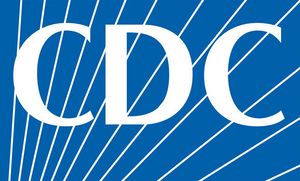Centers for Disease Control and Prevention
The Centers for Disease Control and Prevention is an agency of the United States Government in the Department of Health and Human Services. The Centers for Disease Control and Prevention is responsible for protecting the public health of the United State The Centers for Disease Control and Prevention is commonly called the "CDC". Its main office is in Atlanta, Georgia.
The current director is Rochelle Paula Walensky, who received an M.D. from Johns Hopkins and a M.P.H. from the Harvard School of Public Health.[1] Dr. Walenksky presents herself as an an expert on HIV.
The CDC began to promote male circumcision as a HIV-prevention method as of February 2008.[2] The CDC currently funds mass circumcision campaigns run by BOTUSA.[3]
Contents
Proposed Guidelines for Counseling Male Patients and Parents
On 2 December 2014, the CDC released a proposed guideline for counseling male patients and parents regarding male circumcision and the prevention of HIV infection, STIs and other health outcomes. The proposed guidelines seem to be in line with the AAP's Policy Statement of 2012 and also includes considerations for counseling of adolescents and adults in accordance with their HIV risk behavior, HIV status, sexual preferences and other factors. While the media tried to present these guidelines as an immediate endorsement of circumcision, the guidelines are far from recommending universal circumcision and in fact acknowledge that neonatal circumcision presents ethical concerns over the violation of autonomy. Read our analysis of the guidelines our analysis of the guidelines
CircWatch
External links
 Official website. Retrieved 28 August 2022
Official website. Retrieved 28 August 2022- Website of BOTUSA
 Jones, Ryan (20 July 2022).
Jones, Ryan (20 July 2022). Strange science at play inside the CDC
, Circumcision is a Fraud. Retrieved 28 August 2022.
References
- ↑
 (6 October 2021).
(6 October 2021). Rochelle P. Walensky, MD, MPH
, Centers for Disease Control and Prevention. Retrieved 28 August 2021. - ↑
 (February 2008).
(February 2008). Male Circumcision and Risk for HIV Transmission and Other Health Conditions: Implications for the United States
. Retrieved 1 June 2011. - ↑
 (March 2007).
(March 2007). Success Stories: Male Circumcision: A Question and Answer Session
. Retrieved 1 June 2011.
